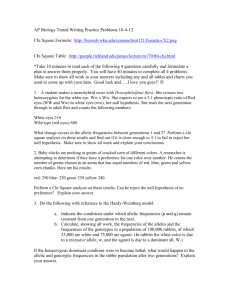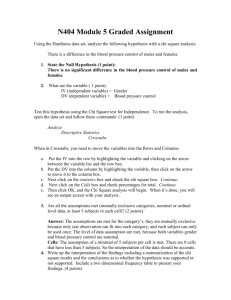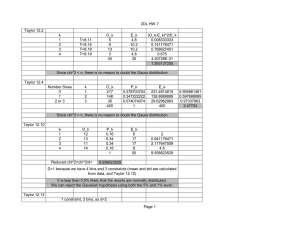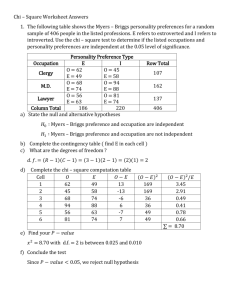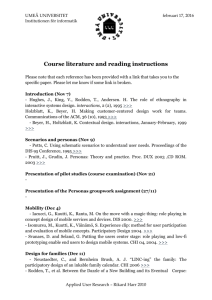Chi Squared
advertisement
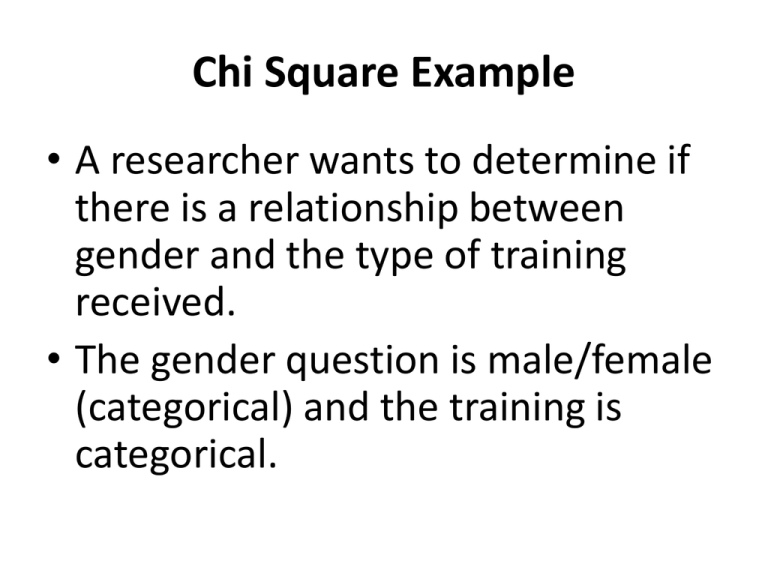
Chi Square Example • A researcher wants to determine if there is a relationship between gender and the type of training received. • The gender question is male/female (categorical) and the training is categorical. Setting Up the Tables To set up the Chi Square Test, set up the table with the frequencies of the responses in the format below. These are the observed cases. Hand-on Classroom Both Types Total Male 15 4 20 39 Female 5 12 11 28 Total 20 16 31 67 Expected Number of Cases • The next step is to determine the expected number of cases in the cells. • To do this, take the row total multiplied by the column total divided by the grad total. • To determine the expected number of cases in the Male and Yes cell, the math would be (39 X 20)/67 = 11.6. Do this for each of the inner table cells. Setting Up the Tables To set up the Chi Square Test, set up the table with the frequencies of the responses in the format below. These are the expected cases. Hand-on Classroom Both Types Total Male 11.6 9.3 18 39 Female 8.4 6.7 13 28 Total 20 16 31 67 Chi Squared Formula • Next, using the Chi Square Test, you will take the (observed minus the expected)2 / expected and sum the results from each of the cells. In this example, there will be 4 parts that will be added to get the Chi Square answer. Chi Squared Formula X 2 X 2 (15 11.6) 2 (4 9.3) 2 (20 18) 2 (5 8.4) 2 (12 6.7 ) 2 (11 13) 2 11.6 9.3 18 8.4 6.7 13 (1.00) (3.02) (.22) (1.38) (.31) 5.93 Determining the Critical Score • With this answer, you will need to compare your Chi Square answer to the “cutoff” score. To find the cut off score, you need to calculate the degrees of freedom. With tables, the degrees of freedom are calculated by (#Rows – 1)X(#columns – 1) or (2-1)*(3-1) = 2 d.f. Chi Squared Table With 2 degrees of freedom and the alpha level (.05), using the Chi Square table, one can find the cutoff score of 5.99. Making the Decision • If the obtained Chi Square is greater than the cut off score, then you reject the null hypothesis and conclude there is a significant relationship between being trained and the gender of the person. • In this example, the obtained X2 is 5.93 which is less than 5.99. Therefore, the researcher does not reject the null hypothesis. The conclusion reached is that there is not a significant relationship between gender of the worker and the type of training they received.

